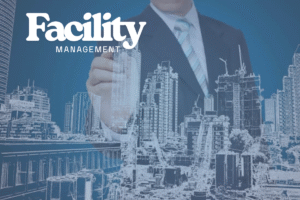AI Revolutionising Facility Management in Riyadh
In today’s rapidly evolving world, إدارة مرافق في الرياض is entering a new era powered by artificial intelligence (AI). The city’s skyline is transforming with smart buildings that think, respond, and adapt like living systems. From predictive maintenance to AI-driven sustainability, Riyadh’s facility sector is embracing intelligence to improve performance, efficiency, and tenant satisfaction. What was once reactive management is now becoming proactive, data-driven, and self-optimising.
The New Frontier of Facility Intelligence
AI allows إدارة مرافق في الرياض to move beyond traditional maintenance by integrating smart sensors, real-time analytics, and automated decision-making. Rather than waiting for problems to occur, managers can now predict them before they happen. This shift reduces downtime, minimizes repair costs, and extends the lifespan of valuable assets.
Imagine a chiller that sends a maintenance alert before it malfunctions or a lighting system that adjusts automatically based on occupancy levels. These capabilities are no longer futuristic—they’re becoming the operational standard across modern facilities in Riyadh.
Moreover, AI transforms the way توثيق العقود works. Instead of manual paperwork, contracts are digitized, searchable, and automated. Facility managers can instantly retrieve historical maintenance data, check compliance, and even trigger auto-renewals based on performance. This makes documentation faster, more accurate, and far more transparent.
Energy Optimization and Smart Sustainability
Energy efficiency is one of the biggest challenges in facility management. In some cases, utilities account for nearly 40% of total operating expenses. With AI, إدارة مرافق في الرياض can monitor energy consumption in real time and automatically optimize performance.
AI algorithms adjust cooling, heating, and lighting systems dynamically based on weather conditions, building occupancy, or peak demand hours. This ensures comfort while minimizing waste. The result is a significant reduction in energy bills and carbon footprint.
Beyond cost savings, this sustainability focus strengthens تأجير وتسويق campaigns. Tenants and investors increasingly prefer eco-friendly, tech-enabled properties. A building that saves energy and provides smart comfort becomes more attractive and competitive in Riyadh’s growing market. It aligns perfectly with Saudi Vision 2030, which prioritizes sustainability, innovation, and digital transformation in urban development.
Integrating Property and Facility Management
The future of إدارة الأملاك في الرياض and إدارة مرافق في الرياض lies in integration. Property managers handle leasing, finances, and tenant relations, while facility managers oversee operations and maintenance. When both teams share AI-powered dashboards, they gain unified visibility across portfolios.
For example, property teams can access facility performance data—energy reports, occupancy analytics, or maintenance logs—to make informed investment or pricing decisions. This synergy enhances efficiency, reduces redundancies, and improves tenant experiences.
AI acts as the bridge that connects these two worlds, ensuring that property and facility strategies align seamlessly for maximum return on investment.
Predictive Maintenance and Enhanced Safety
Predictive maintenance is one of AI’s most valuable contributions to إدارة مرافق في الرياض. Using sensors and machine learning, systems can detect early signs of wear and tear. The moment unusual vibrations, temperature spikes, or pressure drops occur, AI triggers a maintenance alert before breakdowns happen.
This predictive capability helps avoid costly downtime and ensures consistent service delivery. Additionally, AI enhances safety through intelligent surveillance. Smart cameras can detect unusual activity, monitor restricted zones, and automatically alert security teams. This proactive approach ensures not only operational reliability but also the safety of occupants and assets.
Smarter Documentation and Operational Transparency
Digitizing توثيق العقود with AI brings new levels of clarity and accountability. Every vendor interaction, service report, and compliance check becomes traceable. This transparency minimizes disputes, fosters trust, and ensures contractual obligations are met.
For instance, if a tenant reports a delay in maintenance, the system can pull up exact timestamps, technician details, and response logs. Such precision creates accountability while streamlining audits and reporting.
AI and the Future of Tenant Experience
AI is also redefining tenant satisfaction. Smart buildings that adapt to comfort preferences—adjusting temperature, lighting, or air quality automatically—create better working and living environments. Facility apps powered by AI allow tenants to submit requests, track progress, and receive instant updates.
This responsiveness not only boosts retention rates but also supports تأجير وتسويق by improving a property’s reputation. Tenants are more likely to renew leases or recommend spaces that offer convenience, reliability, and innovation.
Strategic Growth and Portfolio Scalability
As portfolios expand, consistency becomes vital. AI centralizes monitoring across multiple properties, enabling managers to benchmark performance and standardize processes. This allows both إدارة الأملاك في الرياض and إدارة مرافق في الرياض to scale efficiently without increasing operational complexity.
Through unified AI platforms, organizations can compare maintenance costs, vendor performance, and energy metrics across all sites—driving continuous improvement and long-term profitability.
Conclusion: Riyadh’s Smart Future
AI isn’t just changing operations—it’s reshaping the identity of إدارة مرافق في الرياض. Facilities are evolving into intelligent ecosystems where systems communicate, predict, and improve autonomously.
The collaboration between إدارة الأملاك في الرياض, تأجير وتسويق, and توثيق العقود will define the next phase of Riyadh’s real estate excellence. As Vision 2030 advances, AI will enable smarter cities, safer environments, and more sustainable growth.
Ultimately, AI empowers human teams to move beyond repetitive tasks and focus on strategic innovation. Riyadh’s buildings are no longer static structures—they are living, learning systems thriving on intelligence, efficiency, and vision.

